Q&A: Josh Fox on the ‘Toxification’ of U.S. Water Sources in the Dig for Natural Gas
Our guest today is Josh Fox. He’s the director of the documentary “Gasland,” which aired recently on HBO, and is screening at film festivals and theaters nationwide.
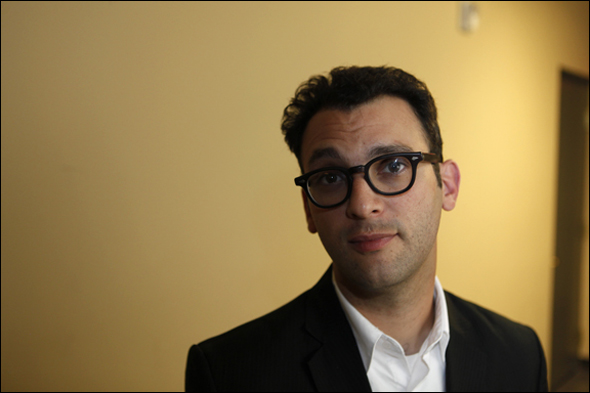
Welcome to Circle of Blue Radio’s “Five in 15,” where we’re asking global thought leaders five questions in 15 minutes, more or less. These are experts working in journalism, science, communications design and water. I’m J. Carl Ganter. Today’s program is underwritten by Traverse Internet Law, tech savvy lawyers representing Internet and technology companies.
J. Carl Ganter: Our guest today is Josh Fox. He’s the director of the documentary “Gasland,” which aired recently on HBO, and is screening at film festivals and theaters nationwide. We spoke with him at the Traverse City Film Festival, where “Gasland” drew sold-out crowds. The film begins as a natural gas company approaches Fox, offering him $100,000 to drill natural gas wells on his land. Fox wonders if this lucrative offer could be as easy as just signing his name. But first he wanted to know more. That question took Fox on a filmmaker’s journey across the country. He went from his small Pennsylvania town above the Marcellus Shale—it’s a formation known as the “Saudi Arabia of natural gas”—to the gas fields of Texas, Utah, Arkansas and New Mexico. Fox’s travels and the people he meets raise big questions about the new gold rush for natural gas. First, here’s a clip from the movie “Gasland”:
“My name is Josh Fox. Maybe I’ll start at the beginning. This is Dick Cheney. No, maybe I’ll start at a different beginning. This is my house. It’s in the middle of the woods, tucked away on a dirt road in a place called Milanville, Pa. The house was built in 1972, when I was born. My parents and their hippie friends built it. My family, my brothers and sisters, and I grew up pretty much the same way it did—little by little. There’s a stream that runs down the property that connects to the Delaware River. I’ve been learning more and more about how water is connected. In 1972, the year I was born, Pete Seeger and a bunch of banjo-playing freaks in the Upper Hudson Valley reminded New York City that as they polluted the Upper Hudson Valley, especially the watershed areas, that New York City’s drinking water would be ruined. (music)”
Josh Fox: Big surprise they attack the film. It’s really unfortunate and disappointing that the industry refuses to take responsibility for the problems that they’re causing. There’ve been a number of different websites that have come out—not, by the way, any websites with any journalistic integrity. There’s never been a journalist review that has any weight in that world that criticized the film. The main problem here is not that they’re attacking the film. The problem is that they’re attacking the citizens in the film, and that they’re attacking the citizens who are reporting these problems across the country. They’ve been doing this for years. They’ve been saying to people, ‘No, you’re wrong. There isn’t water contamination. No, you’re wrong. The health problems that you have were not caused by us. The air that’s got this toxic pollutants, sorry, not our fault.’
They’ve been going out there and denying this for years. Their power in Congress is well shown if they can get these exemptions passed. I think that it’s outrageous, and I think that obviously it’s a travesty of our American democracy system. This just reflects how powerful oil and gas lobbies can be, how much their PR machine can come out swinging against reality. They can state black is white, and then the newspaper will run the story, even though it’s blatantly untrue. This is a problem. I happen to believe that even though they’ve got huge treasure houses of funds available to slander people, the truth is definitely not with them, and the numbers are definitely not with them. The numbers of people who are adversely affected by this vastly outweigh the numbers of people who are benefiting from it.

Josh Fox: This whole bridge fuel argument is one that’s been proposed by the natural gas industry. This is not altruism. This is not oil and gas trying to save the world. This is them trying to make a buck. If they were trying to save the world, they would be complying with the Safe Drinking Water Act, the Clean Air Act, the Clean Water Act, and the Super Fund Law when they’re doing their drilling. This is not about that. This is about their bottom line. This is about their profit.
…if the industry had to pay for the sites that they messed up, if they had to pay for water treatment for the history, for the foreseeable future, for water treatment for watersheds that they’ve poisoned, natural gas would be far more expensive than renewable energy. Renewable energy would be able to compete.
It’s cheaper for them to toxify the landscape and push the costs onto the citizens than it is to include that in the price of natural gas, because if it was included in the price of natural gas, if the industry had to pay for the sites that they messed up, if they had to pay for water treatment for the history, for the foreseeable future, for water treatment for watersheds that they’ve poisoned, natural gas would be far more expensive than renewable energy. Renewable energy would be able to compete. Nobody’s saying coal and oil are going to save the world.
I spoke with Josh Fox at the Traverse City Film Festival in Traverse City, Mich. He’s the director of the new documentary “Gasland”. To find more articles and broadcasts on water, design, policy and related issues, be sure to tune in to Circle of Blue online at 99.198.125.162/~circl731.
Our theme is composed by Nadev Kahn, and Circle of Blue Radio is underwritten by Traverse Legal, PLC, Internet attorneys specializing in trademark infringement litigation, copyright infringement litigation, patent litigation and patent prosecution. Join us gain for Circle of Blue Radio’s “Five in 15.” I’m J. Carl Ganter.


Circle of Blue provides relevant, reliable, and actionable on-the-ground information about the world’s resource crises.

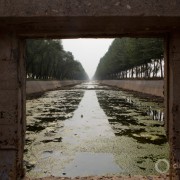
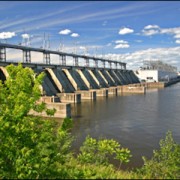
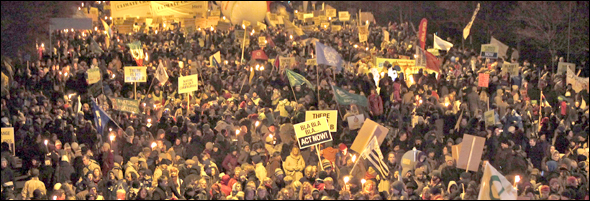


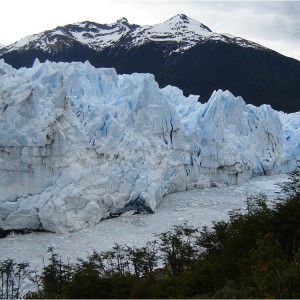
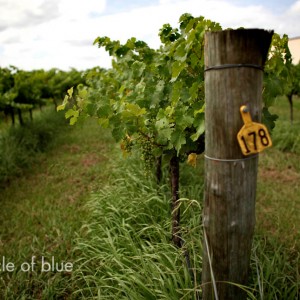
Carl: Josh Fox piece is fantastic! Not many of this type of documentary make it here to “Coal Country” so I’ve ordered it and look forward to becoming more energized. My family down here has become activated and engaged in the grass-roots effort to reign in “Big Coal.” Our beloved governor has been embarrassingly vocal about getting the federal government and the EPA “off our back” with regard to mountaintop removal mining, Appalachia’s version of fracking. Keep up the great work. Tom Oetinger
When we think about what Josh Fox can bring to an informed debate about environmental issues, let’s remember one of the most flamboyant and emotionally-charged images from his documentary hit-piece “Gaslands” – a rural resident lighting their tap water on FIRE! What Josh failed to mention in a spectaculary dishonest bit of artistic license/omission – was that residents across PA and other eastern states could always light their tap water on fire – thanks to naturally occuring methane documented as far back (as Josh later acknowledges, but not in the movie) since 1937. It took Josh’s flair for the dramatic to actually imply the gas industry in general was the cause of this – it isn’t – and that the hydraulic fracturing process specifically, was to blame – and its not. So much for unbiased, calm appraisal of FACTS upon a legitimately important issue.